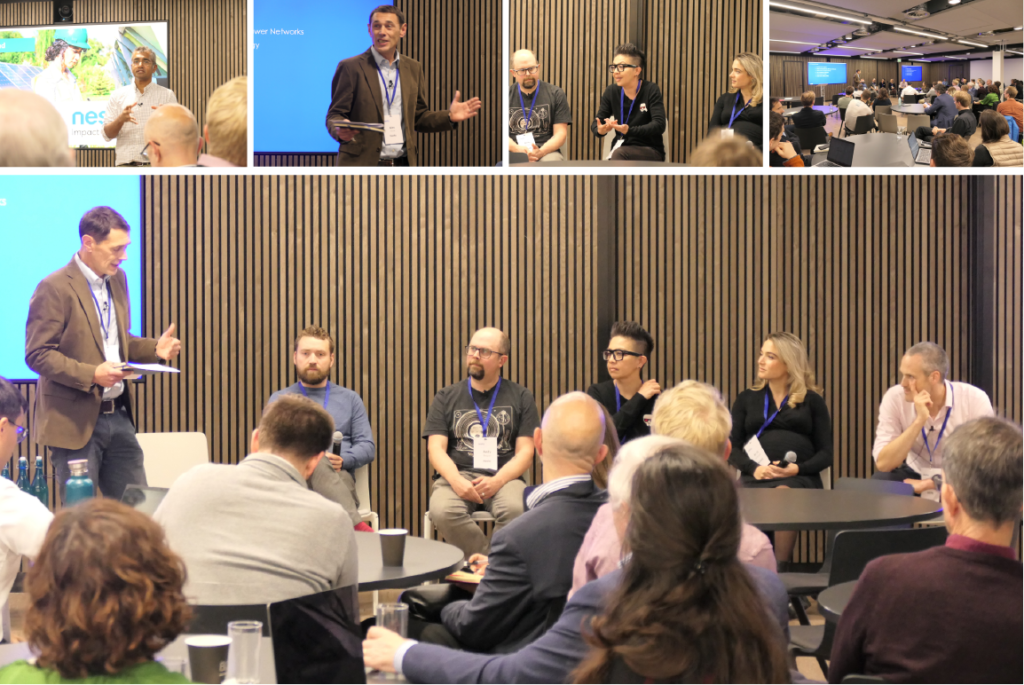Imagining a more flexible grid:
Nesta Impact Investments invests in solutions which will accelerate the decarbonisation of UK households. We have been looking at the role of demand flexibility in supporting efforts to deliver a net zero grid, by tuning demand for energy to match increasingly variable weather-dependent supply. Grid flexibility will bring valuable benefits to householders through:
- Lowering electricity system costs – and therefore all of our energy bills.
- Allowing households to take part in demand flexibility provision by turning up/down their consumption to help balance the grid.

Nesta Impact Investments hosted a panel discussion on the challenges to scaling demand flexibility provision in the UK. We were delighted to welcome Marzia Zafar from Ofgem, Alex Howard from UK Power Networks, Alex Schoch from Octopus Energy, Jo-Jo Hubbard from Electron and Andy Regan from Nesta’s A sustainable future mission team, to share and discuss perspectives on the significance, scale and challenges of demand flexibility and the spread of potential economic benefits.
Overall we found that there is growing importance being placed on scaling demand-side flexibility provision to help defer grid upgrade costs, whilst supporting the connection of more renewable generation sources. Current provision is approximately 60GW and sits, mainly at the high voltage (‘transmission’) layer of the grid. Panellists believed that >200GW would be required by 2050 to help balance the forecast growth in renewable generation sources against the increasing load from the electrification of heating and mobility.
The panel reminded the audience that the electrical grid, particularly at the transmission level, has been dynamically balanced for decades, predominantly by flexing the supply of electricity. In a future of abundant but intermittent supply, the requirement to flex demand becomes more apparent. The panellists agreed that the greatest, and still mostly untapped, opportunity for flexibility was “behind the meter”, helping consumers to utilise their energy assets such as heat pumps, EV’s, batteries and other electrical devices to provide flexibility.
To unlock the potential scale of demand flexibility, the panellists felt certain key challenges needed to be addressed:
- Clear price signals, incentivising the flow of energy to match when and where it is required in the network.
- Standard market templates and protocols for the design and provision of flexibility services.
- Half hourly settlement to allow more real time, granular assessment of network constraints, feeding back into price signals
To unlock end user participation in demand flexibility provision:
- Accelerated smart meter roll out.
- Embedding domestic devices that work together seamlessly, and can automatically participate in flexibility, so that consumers willing to turn up or down their consumption can do so easily.
- Consumer awareness and trust to help people understand the reason for and the benefits of participating in demand flexibility.
If you are working in this area and would like to know more, please contact Alex Hook via askinvestments@nesta.org.uk.